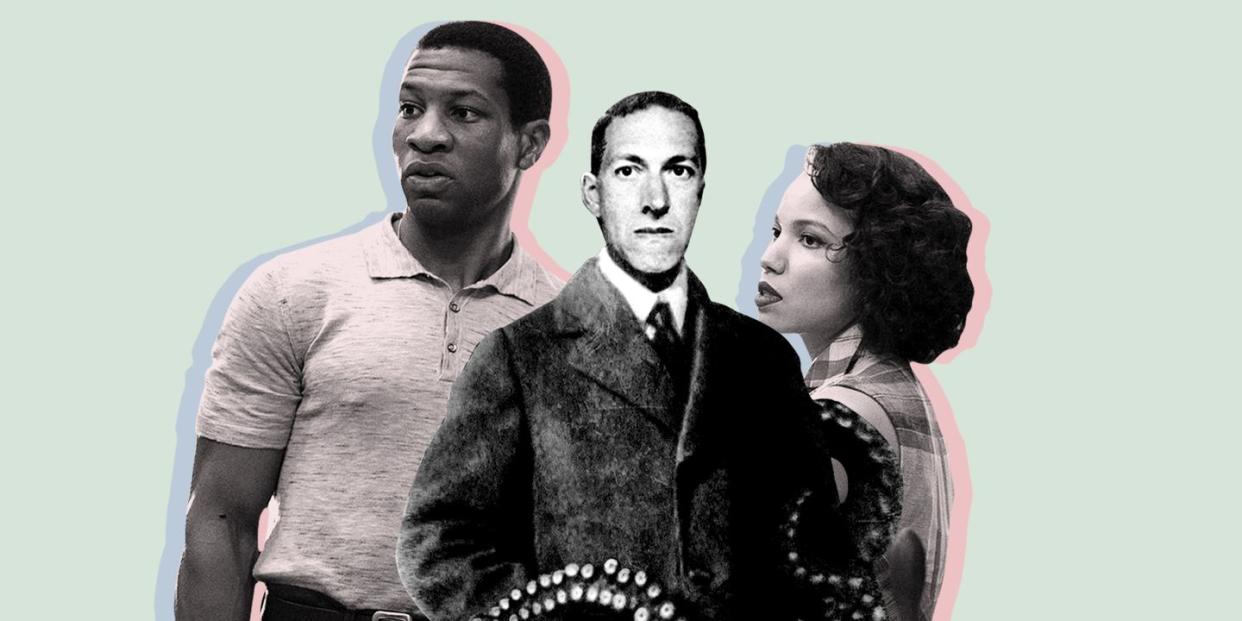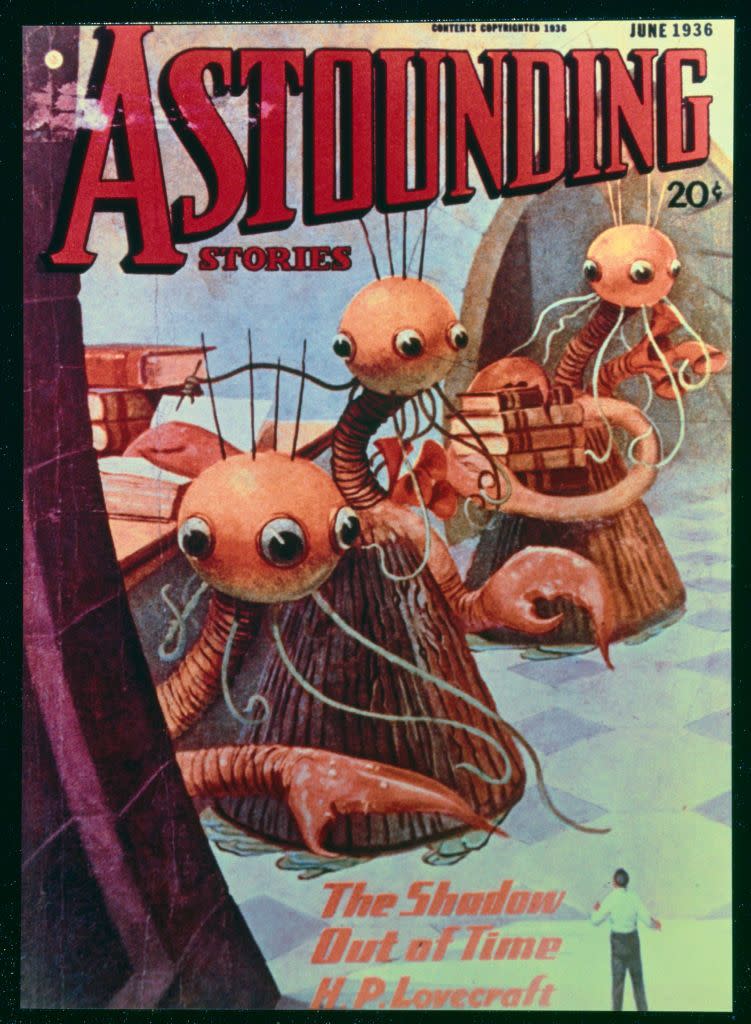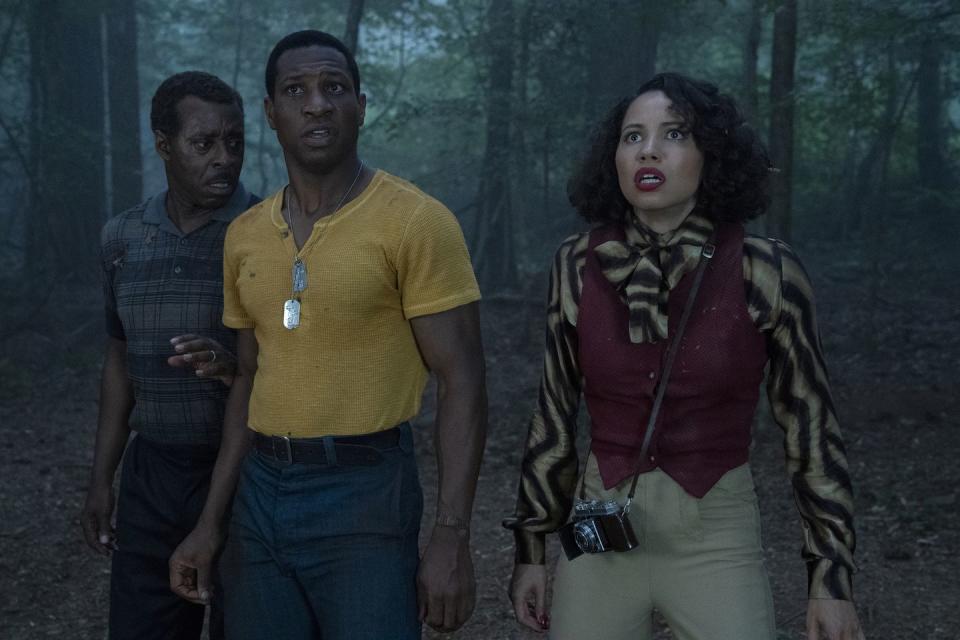How Sci-Fi Writer H.P. Lovecraft's Appalling Legacy of Racism Inspired HBO's 'Lovecraft Country'

The works of H.P. Lovecraft have been read for nearly a century, and influenced generations of writers, including Stephen King and Alan Moore. And with the debut of HBO’s Lovecraft Country, which takes themes from his work and applies them to stories of black Chicagoans in the 1950s as they navigate monsters, magic, mysticism, and the nightmare of American racism, his work is likely poised to reach new audiences.
But part of the reason Matt Ruff, author of the novel on which Lovecraft Country is based, decided to use the author’s works as a basis for examining American bigotry, is the fact that Lovecraft himself was deeply racist and anti-Semitic. And while many long-dead artists espoused beliefs that are abhorrent by 2020 standards, Lovecraft was even a bigot for his own time—we’re talking freely-used slurs and Nazi-sympathizing levels of racism. Here’s what you should know about the writer and his legacy.
Who was H.P. Lovecraft?
Lovecraft was born in 1890 in Providence, Rhode Island. His life was marked by tragedy—both his parents died as patients of a local mental hospital, and while he was born into a wealthy family, he slid into poverty after the death of his wealthy grandfather. He also suffered from mental illness himself, and ended his education in high school after suffering a nervous breakdown.
He began publishing short stories and working in journalism in the early 1910s. The writer moved to New York City for a time and married writer and publisher Sonia Greene, but the marriage was short-lived, and Lovecraft later moved back to Providence, and died in poverty and anonymity at age 46.

Many of his works take place in fictional, remote Massachusetts towns with names like Dunwich, Innsmouth, and Arkham—communities that Lovecraft fans would later dub “Lovecraft Country.” His works often featured mammoth monsters that lurk underneath these sleepy burgs, and which have ties to ancient, evil religious texts. Even a glimpse of these monsters tends to strip any unfortunate humans who spy them of their sanity.
Lovecraft’s most famous creation is Cthulhu, an ancient, winged and tentacle-faced cosmic entity who has a following of worshippers among ancient human cults. Another monstrous creation are shoggoths, giant, slug-like alien beasts.
So just how racist was he?
Really, really racist. In 1912, he authored a poem called “On the Creation of N*ggers,” and if the title weren’t evidence enough of his bigotry, in it he calls Black people “semi-human” and “filled... with vice.” He also hated Jewish people, and wrote that they “insidiously degrade[d]... Aryan civilization”. Unsurprisingly, he was a big fan of Adolf Hitler. “I know he’s a clown, but god I like the boy,” Lovecraft wrote. Of New York’s Chinatown neighborhood, he hoped in one letter that “a kindly gust of cyanogen could asphyxiate the whole gigantic abortion.”
His racism bled through to his writing, and just in the bigoted way he describes non-white characters. Lovecraft’s work is often preoccupied with bloodlines, and with the horrors spawned by humans breeding with monsters. It’s a preoccupation that perhaps reflected his fears about the “pain and disaster” that would be wrought from the “mingling of black and white.”
“One way to read the Cthulhu mythos is this fictionalized version of the fragility of white supremacy,” Ruff said in an interview with the Seattle Review of Books, “and Lovecraft’s fears about that, and his need to be on guard against miscegenation and race mixing and democracy and liberal ideas about all people being created equal.”

Ruff, who’s white, has said that he was partially inspired to write Lovecraft Country by Black writer Pam Noles’ 2006 essay “Shame,” which chronicles the challenges of being a Black science fiction fan. “...during near-weekly pilgrimages to the neighborhood branch library, I'd started asking the librarian if she had books with magic and spaceships and dragons and stuff in them,” wrote Noles, “but with some Black people, too. Black would be the first choice, but anybody kind of brown would do. It seemed the answer, for my age group anyway, was no. When I got older, there would be a few.”
She wrote that her parents often drew her attention to the overwhelming whiteness of the media she loved—much as George does with his sci-fi fan son Atticus in Lovecraft Country. “But what she and my Dad were trying to make me hear was their question,” she wrote. “Why do you love a thing that won't even let you exist within their made up worlds?”
You Might Also Like

